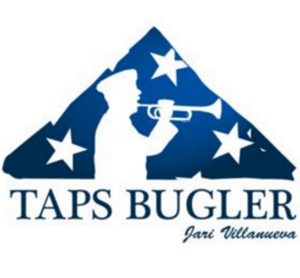
The sounding of Taps at Veterans Day ceremonies
I have noticed a lot of discussion about the appropriateness of sounding Taps as part of Veterans Day ceremonies. I have also received some emails and messages asking about it. The concern about sounding Taps on this day stems from the fact we are celebrating and honoring living veterans who have served in our military. We also recognize the continued service of those wearing the uniform today.
Ceremonies marking Veterans Day will be held throughout the country and most will include an honor guard. It is interesting to note that some of these ceremonies will take place in cemeteries. And most will conclude with a wreath presentation, the firing of three volleys and the sounding of Taps.
The inclusion of the rifle volleys has always be curious as Veterans Day is not a funeral. The firing of three rifle volleys (which is not a “21-gun salute”) is a ritual which should be reserved for funerals. It is, in my opinion, wholly inappropriate to fire them at ceremonies outside of military burials. In fact, they are not required as part of military funeral honors as directed by the Department of Defense. The tradition of the three volleys are rooted in ancient burial rituals with religious overtones. Because of manpower issues, military funerals can be performed with two military personnel and the only requirements are the sounding of Taps, the folding of the flag and its presentation to the next of kin.
Firing parties are added as manning allows and for certain types of military funerals based on the status of the person being buried. VSOs have helped by supplying rife teams for funerals.

The tradition of sounding Taps on November 11 of each year stems from the fact that this date was once known as Armistice Day commemorating the cessation of all major hostilities of World War I at the 11th hour of the 11th day of the 11th month of 1918 with the German signing of the Armistice. Armistice Day became a legal Federal holiday in 1938 when Congress passed a bill declaring that each November 11 “shall be dedicated to the cause of world peace and …hereafter celebrated and known as Armistice Day.” The holiday was officially re-named Veterans Day by Act of Congress in 1954, and President Eisenhower asked citizens to observe the day by remembering and honoring the sacrifices of the servicemen of all America’s wars, and through re-dedication to the task of promoting an enduring peace.

Every year beginning in 1919, there has been a ceremony to mark the end of the war. After the World War I Unknown Soldier was interred at Arlington National Cemetery in 1921 there has been a ceremony held there to honor that Unknown. The ceremony is marked with wreath by the President and the sounding of Taps by an Army bugler.

In the United Kingdom, ceremonies are also held on November 11 marking the end of the World War I hostilities. This day is known as Remembrance Day with the main ceremonies held at the Cenotaph Memorial. This ceremony includes the sounding of Last Post, the Commonwealth’s equivalent of Taps.

Veterans Day is a time in which we remember and honor those living veterans who have and continue to serve. But as with most military traditions there is a time to pause and remember those who have gone before. With that in mind, it is appropriate to take time during a Veterans Day ceremony to remember those who have died and also honor those still with us with the sounding of Taps.
Taps has become our National Song of Remembrance and has, over the many decades, become part of our American culture and fabric. Every living veteran can recall going to sleep to the strains of the call. Countless Americans, whether they have served or not, have heard the familiar melody over the years.

In 2020 almost 1000 buglers will sound Taps around the country. Players will sound the call at hoem due to COVID-19 restrictions but many will seek out WWI memorials to honor the Unknown Soldier.

This will mark the begin of programs and events leading up the the Centennial of the Tomb of the Unknown Soldier. The Society of the Honor Guard Tomb of the Unknown Soldier (SHGTUS) Centennial Committee is sponsoring The National Salute as one of its key projects of the Centennial (TUS100) as the 100th anniversary approaches of the burial of the Unknown American Soldier who fought and died in World War I who was buried in the Tomb at Arlington National Cemetery.
More information can be found at https://tombguard.org/centennial/
Taps has always had a dual purpose. One is to end the day, extinguish lights and go to sleep (“Day is done, Gone the sun…). The call in this context has transcended the military. It is used at summer camps, sung by Girl Scouts, and played in the evening by civilians in hometown communities.
The other purpose is as the final honors at a military funeral for a veteran and at memorial services and wreath ceremonies. Yet, this too has transcended the military as it is used at services for those who serve in other uniforms besides the military.
So should Taps be sounded on Veterans Day? I think it’s as appropriate as singing the Star-Spangled Banner.
You will hear it in many forms on November 11. Played on the bugle at Arlington, echoed by high school trumpeters, performed in a concert arrangement by a band, sounded at countless ceremonies around the country by trumpeters and buglers.
Jari Villanueva
#TapsBugler #TapsForVeterans #VeteransDay
















